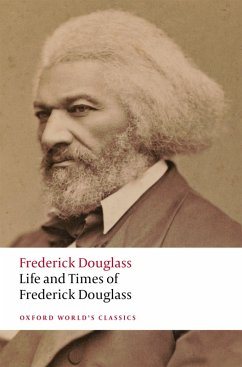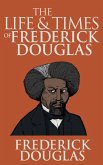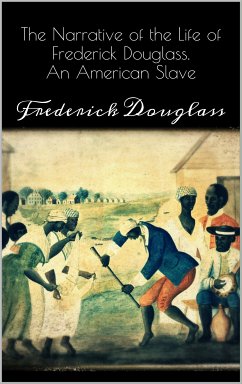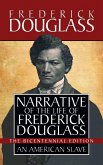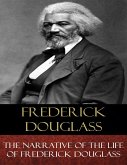'It will be seen in these pages that I have lived several lives in one: first, the life of slavery; secondly, the life of a fugitive from slavery; thirdly, the life of comparative freedom; fourthly, the life of conflict and battle; and, fifthly, the life of victory, if not complete, at least assured.' First published in 1892, Life and Times of Frederick Douglass Written By Himself is the final autobiography written by Frederick Douglass (1818-1895), a man who was born into slavery in Talbot County, Maryland. Securing his self-liberation at twenty years of age in 1838, he went on to become the most renowned antislavery activist, social justice campaigner, author, orator, philosopher, essayist, historian, intellectual, statesman, and liberator in U.S. history. A powerful literary work, Douglass' final autobiography shares the stories of his 'several lives in one.' Beginning with his war against 'the hell-black system of human bondage,' Douglass bears witness to his personal experiences of mind-body-and soul-destroying tragedies. Living a new life as a 'fugitive from slavery,' he tells his audiences of his decades-long labours as a world-leading freedom-fighter. Ever vigilant in his protest against the discriminatory persecutions endured by millions of 'my people,' he testifies to the terrible reality that his 'life of comparative freedom' necessitated a lifelong fight against the inhumane injustices of 'American prejudice against colour.' Living a death-defying 'life of conflict and battle' during the Civil War, Douglass celebrates the 'life of victory' promised by post-war civil rights legislation only to condemn the failures of the U.S. nation either to exterminate slavery or secure equal rights for all. All too painfully aware that the 'conflict between the spirit of liberty and the spirit of slavery' was far from over and would become the unending struggle for 'aftercoming generations' in the ongoing war against white supremacy, Douglass remained a fearless fighter against the 'infernal and barbarous spirit of slavery' 'wherever I find it' to the day that he died. This new edition examines Douglass' memorialization of his own and his mother Harriet Bailey's first-hand experiences of enslavement and of their 'mental' liberation through a 'love of letters'; his representation of Civil War Black combat heroism; his conviction that 'education means emancipation'; and finally, his 'unending battle' with white publishers for the freedom to 'tell my story.' This volume reproduces Frederick Douglass' emotionally powerful and politically hard-hitting anti-lynching speech, Lessons of the Hour, published in 1894. ABOUT THE SERIES: For over 100 years Oxford World's Classics has made available the widest range of literature from around the globe. Each affordable volume reflects Oxford's commitment to scholarship, providing the most accurate text plus a wealth of other valuable features, including expert introductions by leading authorities, helpful notes to clarify the text, up-to-date bibliographies for further study, and much more.
Dieser Download kann aus rechtlichen Gründen nur mit Rechnungsadresse in A, B, BG, CY, CZ, D, DK, EW, E, FIN, F, GR, HR, H, IRL, I, LT, L, LR, M, NL, PL, P, R, S, SLO, SK ausgeliefert werden.

